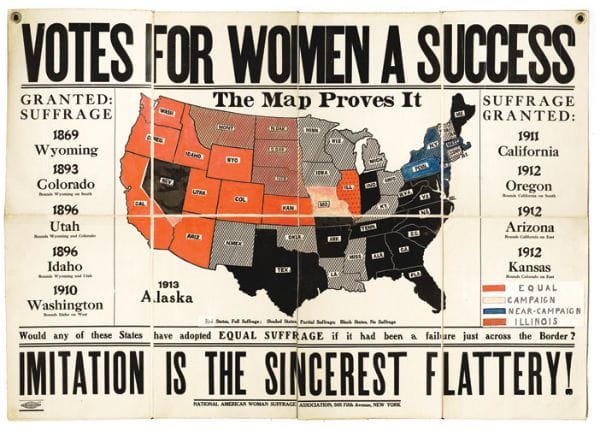The 2012 Project Seeks to Elect More Women to Congress

Credit: http://www.visitthecapitol.gov

In less than one week, American people will have elected their President but also their Congress Members and Senators. Will America elect the 20 percent of women in Congress the 2012 Project is fighting for?
Currently, only 17 percent of Congress is female despite women making up 51 percent of the population and 56 percent of voters, and the US ranking 78th in the world in women's representation. The 2012 Project was created by the Center for American Women and Politics to encourage women to run for office and offers them non-financial campaign support.
Project 2012 offers a great opportunity to increase the number of women in office as research has shown that women have more success in winning open seats and more open seats exist in 2012. Presidential elections are also considered more favorable for female candidates.
The 2012 Project has created a database of organizations that do campaign training, leadership training for women in every state. The Project also assembles a faculty "comprised of former elected women, officers of women's political organizations, and campaign operatives" which have been touring around the country hosting conferences to share their experiences and give advice to women running for office. The 2012 Project website provide additional practical information.
So far, for national offices, the project has been a success. In November, 163 women are running for the House of Representatives, an all-time high, and 18 for the Senate. Of these, 116 are Democrats and 47 are Republican. This disproportion can partly be explained by the fact that Republican women have a harder time passing the primary election as they tend to be more moderate than their male counterparts and more extreme candidates fare better in primaries.
The 2012 Project, in order reach 20 percent in the House that is to say 87 Members, is counting on:
- 56 women incumbents certain to win;
- 3 women incumbents likely to win;
- 10 new women candidates almost certain to win;
- and 27 incumbent women and new candidates running in competitive seats, of whom two-thirds would need to win.For the Senate, as 9 sitting women Senators are not running for re-election, only 11 women candidates needs to win to reach the milestone.These candidates will bring diversity, not only by being women but also by representing minorities. Among those who could be elected in November the first Asian Member of Congress from New York, Grace Meng, the first African-American Mormon, Mia Love, or the first Hindu representative, Tulsi Gabbard from Hawaii.Compared to other countries, the United States is clearly trailing in female leadership, but this year American voters can change that as they have an opportunity to give women better representation by electing enough women to make up 20 percent of Congress in 2012.


